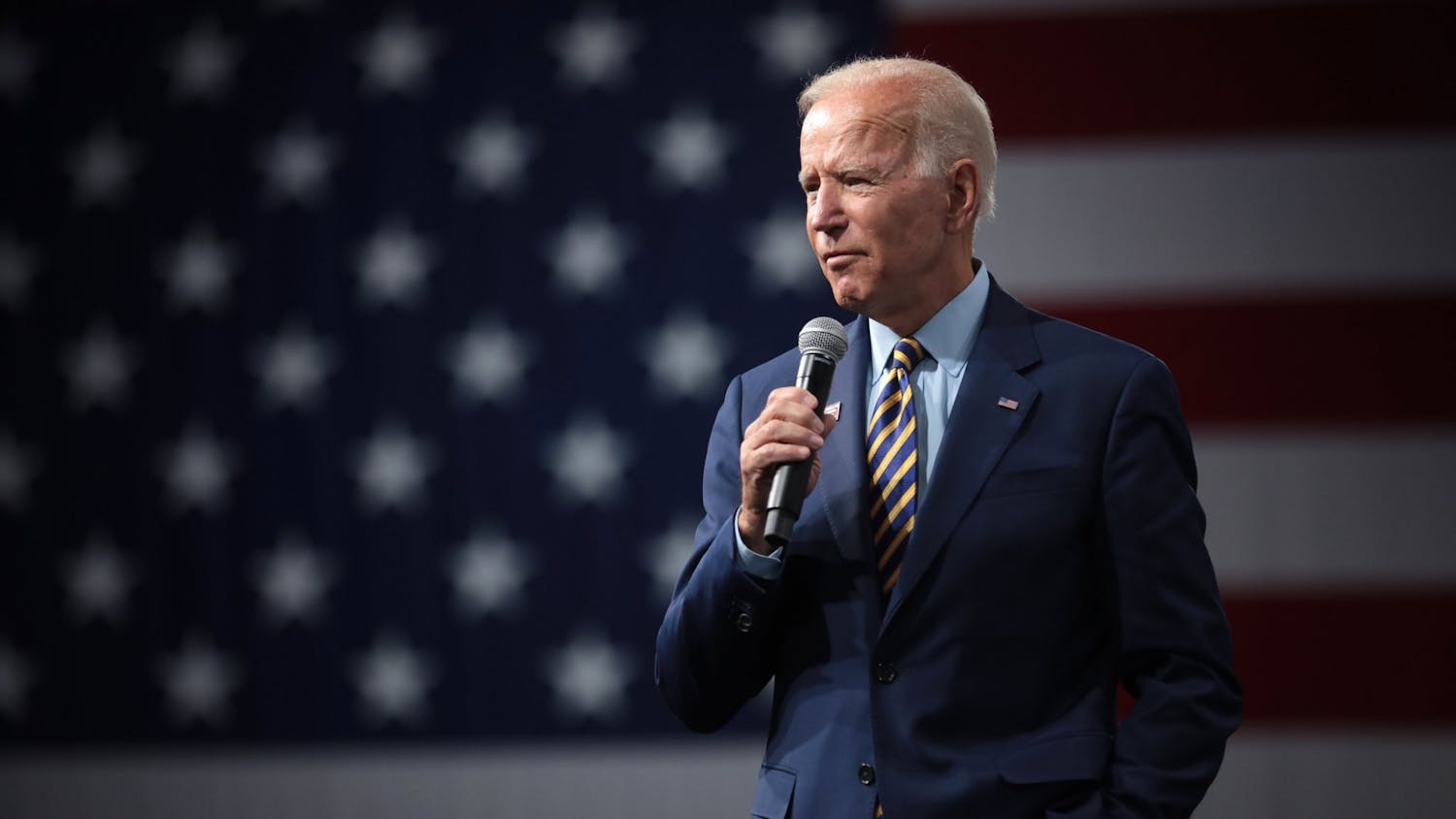Professors from Eastern Michigan University held the “Crisis in Ukraine” panel on Tuesday, March 22, to discuss the ongoing invasion of Ukraine and the historical, cultural, political, cyber warfare, and global energy implications of the crisis.
On Feb. 24, President Vladimir Putin of Russia announced he had ordered his country's armed forces to carry out a special military operation in Ukraine. The Russian military began a multi-pronged invasion of the entire country, which was met with fierce resistance by the Ukrainian people and armed forces, condemnation from the international community, severe economic sanctions from the United States and member states of the European Union, and extensive military assistance from NATO.
James Egge, a professor of history and associate dean of the College of Arts and Sciences, and Peter Higgins, a professor of philosophy and department head of History and Philosophy, moderated the discussion.
The first speaker of the night was Jesse Kauffman, a professor of history at EMU. He gave a historical explanation of Ukraine. Putin believes there is no such thing as “Ukrainian” because the country was once a part of Russia, and he believes it still belongs to Russia. “In many parts of the Russian political and cultural elites, there still is a lingering belief that there is no such thing as a Ukrainian,” Kauffman said.
Although Ukrainians are a separate unit from Russia, with different cultures, history, dialects, and ethnic groups, Russian nationalists believe that Ukraine cannot be a separate entity.
The second speaker of the event was Judith Kullberg, a professor of political science at EMU. She spoke on how Vladimir Putin wants to return to Russian imperialism and says that he is protecting the people of Ukraine from the people who head their government.
The “Basic Russian political model” is something Putin is recreating, and it revolves around the political power of one individual and is connected to imperialism. The political model thrives under the lack of individual and political freedom with xenophobia and deep mistrust of other countries, Kullberg detailed.
“Although the state seems very strong, it actually has a lot of internal weaknesses because it relies upon oppression and domination to maintain its existence,” Kullberg said. “There is an inherent weakness and surprising fragility of the Russian political model.”
The third speaker of the event was Rachel Schroeder, an assistant professor of sociology at EMU. Her research and teaching focuses on culture, politics, religion, and social change. Schroeder spoke on the war of religion as a basis for this invasion. Russia is drawing on the church to justify their actions and drawing on the symbols of the past to create something new, Schroeder says.
The fourth speaker of the event was Andrii Kashliev, an associate professor of computer science at EMU. He spoke on Russian cyber warfare against Ukraine and the whole world. Kashliev discussed current Russian cyber warfare, including the denial of service attacks, hacker attacks, spreading disinformation and propaganda, sponsoring internet “trolls,” and more.
The final speaker of the night was Andrew Mansfield, an assistant professor of mechanical engineering at EMU. He discussed modern European power and chemical manufacturing. EU and Russian energy economics are extremely interdependent, and without Russian fossil fuels, the EU would lack the energy needed to run their countries. This dependence is why imposing sanctions on Russian energy would backfire onto the entire EU, Mansfield said.
"If the EU wants to use fossil fuel, it needs to look around, and its primary fuel is in Russia,” Mansfield said. “It is very difficult to transport energy long distances, you end up burning energy before reaching your destination.”
The event ended with a Q&A portion where the audience could direct questions at the panelists. One audience member asked if an escalation of the current situation or prolonged fighting is expected.
“Putin will not back down and lose face,” Kullberg said. “The longer it goes on, the more dangerous it becomes.”
Another audience member asked the panelists what they forsee as the war’s outcome.
“There is a possibility that the economic pain will burst the rally around the flag effect we see in Russia right now,” Kullberg said. “That bubble will burst, and reality of hard times will sink in.”
For more information about the “Crisis in Ukraine” panel and for resources to help Ukrainians, visit emich.edu/ukraine-panel-discussion/.










